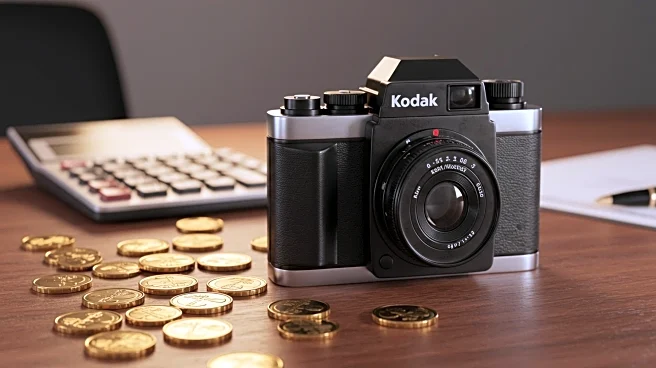What's Happening?
Kodak has responded to concerns about its financial stability, emphasizing that it is not on the brink of going out of business. The company has acknowledged the 'going concern' language in its financial filings, which is a standard disclosure due to upcoming debt maturities. Kodak plans to address its financial obligations by utilizing approximately $300 million expected from the reversion and settlement of its U.S. pension fund, the Kodak Retirement Income Plan (KRIP), by December. The company is confident in its ability to manage its debt through refinancing and asset sales, including the sale of illiquid assets from the KRIP.
Why It's Important?
Kodak's financial situation is critical for its stakeholders, including employees, retirees, and investors. The company's ability to manage its debt and pension obligations will determine its future viability and financial health. Successful execution of its financial strategy could stabilize Kodak's operations and improve its balance sheet, potentially restoring investor confidence. However, failure to secure the necessary funds or refinance its debt could lead to financial distress. This situation highlights the challenges faced by legacy companies in adapting to changing market conditions and managing long-term financial commitments.
What's Next?
Kodak is expected to have a clearer understanding of its financial strategy by August 15, as it continues to negotiate with creditors and finalize the pension settlement. The outcome of these efforts will be closely watched by stakeholders, as it will impact Kodak's ability to sustain its operations and pursue future growth opportunities. The company's focus on its advanced chemicals and materials business may also play a role in its long-term strategy to diversify and strengthen its market position.










